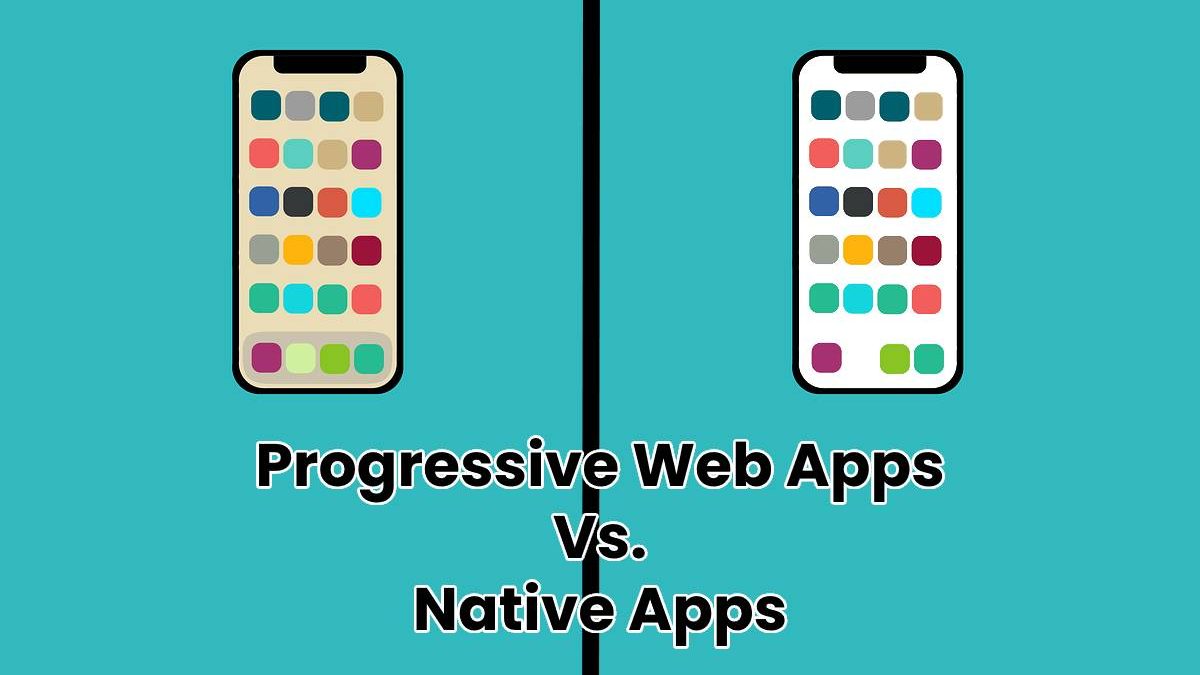Progressive Web Apps Vs. Native Apps
Table of Contents
What is a Progressive Web App?
A progressive web app is the smart mixture of a website and an app. They are designed primarily to be accessed on mobile devices, but unlike apps, you don’t need to install them. Rather, you can visit the website from your web browser, and yet enjoy all of its highly responsive and helpful functionalities. Progressive web apps are written in HTML or JavaScript.
Progressive web apps don’t require installation, but you can still get them to appear in your mobile home screen, just like an app, and enjoy one-touch access. 2048 game is a perfect example of a progressive web app.
Progressive web apps are becoming rapidly popular and successful due to the many benefits they offer.
What is a Native App?
A native app is what we understand generally by the term ‘app’. They are developed for platforms like android or iOS and need to be installed before you can use them. As we know, native apps are developed with either native or cross-platform app development programs.
Native apps too have some advantages for which they are still preferred by many. Keep reading to know more and make an informed decision.
Advantages of Progressive Web Apps over Native Apps
When you compare PWAs with Native apps, you’ll find the following things working in favor of PWAs:
-
Cost-effective
PWAs generally cost almost as much as it would cost you to build a website. Native apps, however, are more expensive to build.
-
Easier and faster to build
Progressive web apps are also easier and faster to build. If you already have a website, you can make a few tweaks and add some plug-ins, or a few functionalities, and that will be all. Your progressive web app will function just like a native one.
On the other hand, native apps require writing codes and building them from scratch. Moreover, they require different development programs for different platforms. So, they are not only more complex, but time-consuming too.
-
Convenient distribution
The same goes for distributions as well. After building your native apps for different platforms like IOS and Android, you’ll need to launch them through their respective app store as well. But with Progressive Web Apps, you don’t need to build them separately for different platforms. Just a single website and you’re done! Your progressive web app will function equally well through a web browser on different platforms.
-
Easily discoverable
Another advantage of a progressive web app is that you can enjoy more traffic, more visitors, and hence, better business opportunities through them, owing to the power of SEO. The contents of a progressive web app is discoverable on search engines because progressive web apps function exactly like a website, and they are required to be indexed on search engines. So, your PWA attracts more organic traffic when you take care of the SEO.
However, in case of a native app, it is not indexed to a search engine, but to the app store. The chances of being discovered is limited to when people are browsing through the app store only. You can still perform ASO or App Store Optimization techniques to make your app more discoverable, but you don’t get any direct benefits from SEO.
However, you can still indirectly use SEO when you have both a website and an app, and redirect your website traffic to your app by suggestions and CTAs.
Advantages of Native Apps over Progressive Web Apps
When it comes to Native apps, they too have certain advantages that make them desirable for a business, such as:
-
Better security
When it comes to data security, native apps are way ahead of progressive web apps. As native apps are built to dedicatedly perform some particular functions, more attention is paid to the details and better, costlier technologies are used to make them safe and secure.
While progressive web apps too use general security features common for websites, they fall short when compared to native apps.
-
Better user experience
Similarly, since better attention is paid to details in native apps, and developers create apps keeping the functionalities of each individual platform in mind, native apps offer a more wholesome and immersive experience to the users.
Progressive web apps, on the other hand, do get the jobs done, but they cannot match the user experience that native apps offer.
-
Superior functionality
When it comes to progressive web apps, their functionality is limited when compared to native apps. Although with the advent of newer technologies, progressive web apps are nowadays offering a large number of functionalities in forms of plug-ins and other useful features, they still are a website at the end of the day. So, if you need a number of high-end functionalities, progressive web apps might disappoint you.
-
Trustworthiness
Another factor that goes in favor of native apps is their trustworthiness. When a customer sees your app on the app store, it generally creates a good impression in their minds. Having an app is a way of showing your customers that you’re serious, trustworthy, and here for the long run.
To sum it up
The choice depends on what you want out of your app. If you want a quick app that will perform all the basic functions, won’t require much time and money to build, and will be easier to get going, choose the Progressive Web App. But if you need high-end functionality, better securities, and the dependability of an app, invest in a native app.
Related posts
Sidebar
Recent Posts
An Inside Look Of Paraulogic
Introduction Welcome to the exciting world of Paraulogic! Are you ready to dive into a linguistic adventure and put your…
Empowering Artists with Cryptocurrency: A Guide to Selling Art Using NFTs
In the ever-evolving landscape of the art world, artists are constantly seeking innovative ways to showcase and monetize their creations….



